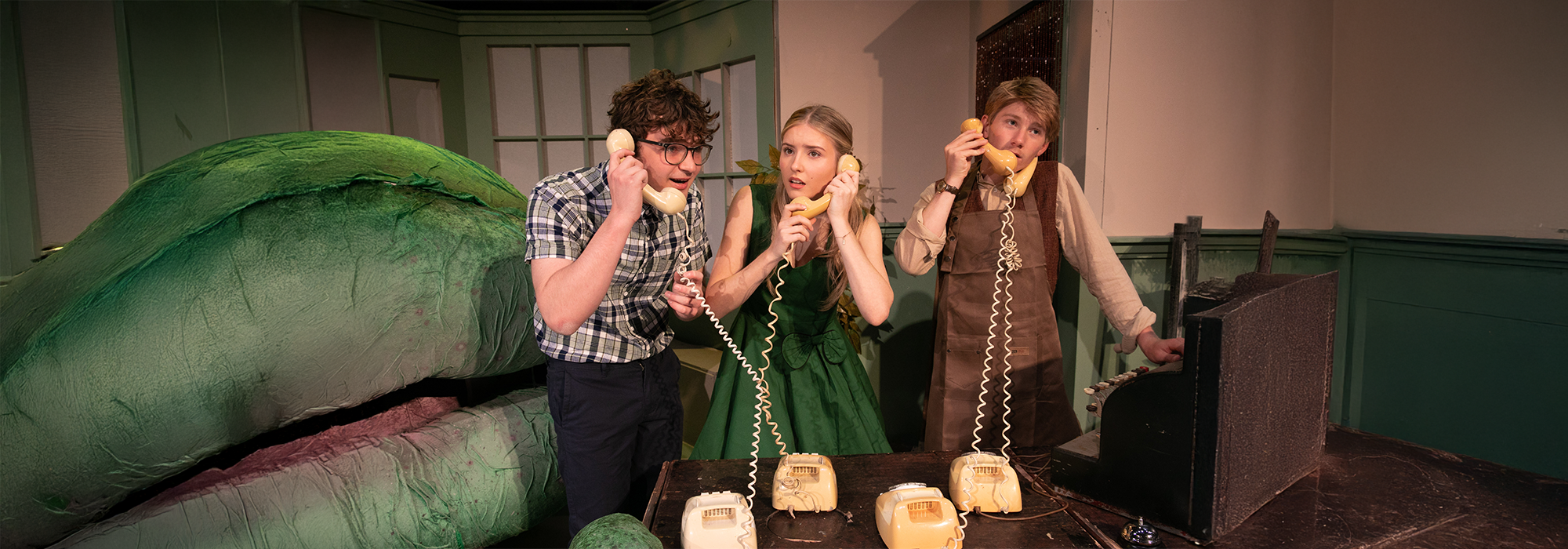
Drama plays a vital role in the development of young minds, offering students from Junior School to Senior School opportunities to express themselves, build confidence, and explore creativity in a supportive environment. From early performances that ignite the imagination to more sophisticated productions in the Senior School, Drama allows students to develop communication skills, empathy, and resilience. It is not only about the spotlight but also about collaboration, problem-solving, and emotional growth.
Behind the Scenes of Little Shop of Horrors
THE DECISION TO STAGE Little Shop of Horrors as this year’s Senior School musical stemmed from a collaborative effort between the Music and Drama departments. The show was selected to not only showcase students’ talents but also provide coeducational opportunities. Following the success of School of Rock in 2022, it was crucial to choose a musical that was stylistically distinct yet engaging. Little Shop of Horrors stood out as a character-driven, family-friendly production, a crowd-pleaser for students and audiences alike.
The editorial team sat down with Cranbrook’s Head of Drama, Andrew Benson, to find out more about how the School brought this production to the stage, the challenges and the memorable moments that it created.
Can you share some insights into the casting process and how you selected the students for the various roles?
The casting process was comprehensive, attracting over 100 Cranbrook students for lead and ensemble roles. With a significant number of female students auditioning, the production team faced the challenging task of selecting the cast after multiple rounds of callbacks, dance calls, and vocal warm-ups. In a stroke of good fortune, we decided to double cast the lead roles, providing even more students with opportunities to shine in front of our school community.
What were some of the unique challenges you’ve faced in bringing Little Shop of Horrors to life, particularly in a school setting?
Little Shop of Horrors is a much smaller show that “School of Rock” so it has been a creative challenge to find moments to bring to life on stage for the large cast. In particular it has been wonderful to find creative moments with our choreographer Chelsea Slender to create dream sequences.
Bringing Little Shop of Horrors to life has presented unique challenges, particularly with the show’s iconic puppet, Audrey II. Created by renowned international puppeteer Paul Fraser, this collaboration has been a fantastic learning opportunity for our students. However, not having the puppet until production week posed challenges. Thankfully, the creativity and acting skills of Levi and Finn, who share the role of Audrey II, have allowed the cast to interact with a real performer, enhancing the production’s dynamic.
Additionally, as Little Shop of Horrors is a smaller show compared to School of Rock, it has been creatively challenging to bring moments to life on stage for our large cast. Working closely with choreographer Chelsea Slender, we’ve crafted imaginative dream sequences that add depth to the performance.
How are students involved in the behind-the-scenes aspects of the production, such as set design, costumes, and technical support?
Cranbrook boasts a vibrant tech company, and we actively encourage student participation in behind-the-scenes roles. For every performer on stage, there’s a dedicated group working backstage in lighting, tech, and costumes. This collaborative effort creates a seamless experience, allowing the production’s world to come alive effortlessly.
What do you hope the students and audience will take away from this production, both in terms of entertainment and educational value?
Through this production, students and families witnessed a remarkable cross-collaborative event where Music and Drama came together to create meaningful theatrical moments. One of the joys of Cranbrook is the diverse range of students participating, showcasing their talents not only in the arts but also in sports and academics. The school musical serves as a celebration of our community, inviting everyone to either perform or actively engage as a vital audience member.
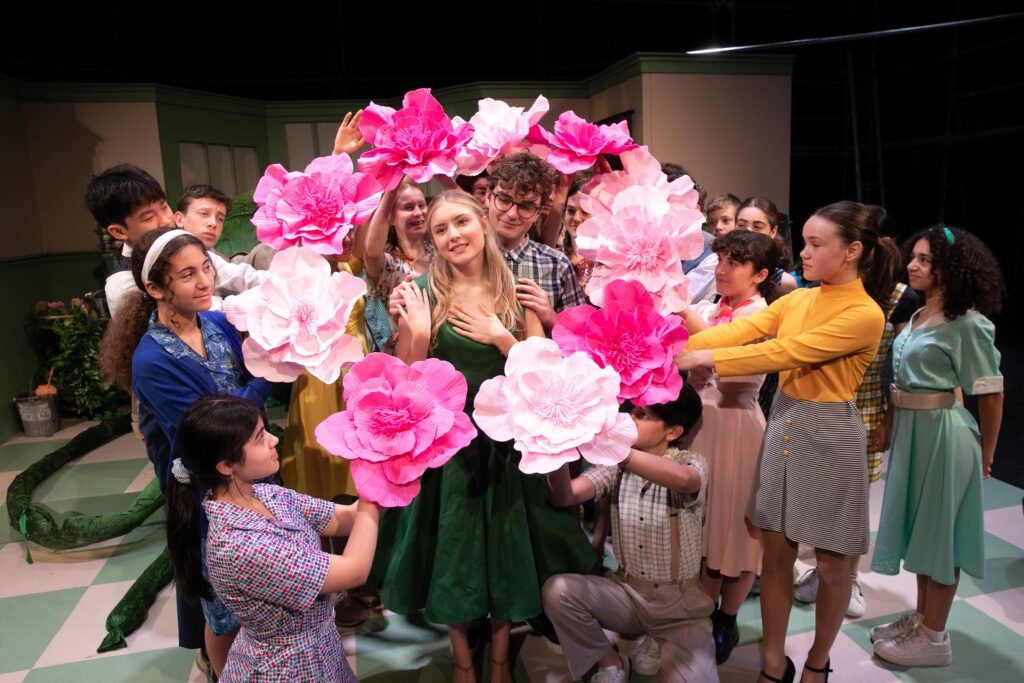
Junior School Production: Stuart Little
In Term 3, the Junior School held its production of Stuart Little, the heartwarming story of a small mouse born into a human family in Sydney. Throughout the tale, Stuart learns invaluable lessons about friendship, courage, and the importance of being true to oneself. This charming tale captures the essence of adventure and character, which made it a perfect choice for our young performers.
Sophie Boniface, Cranbrook Junior School Drama Teacher, was the force behind the production and she discussed the challenges and highlights with us.
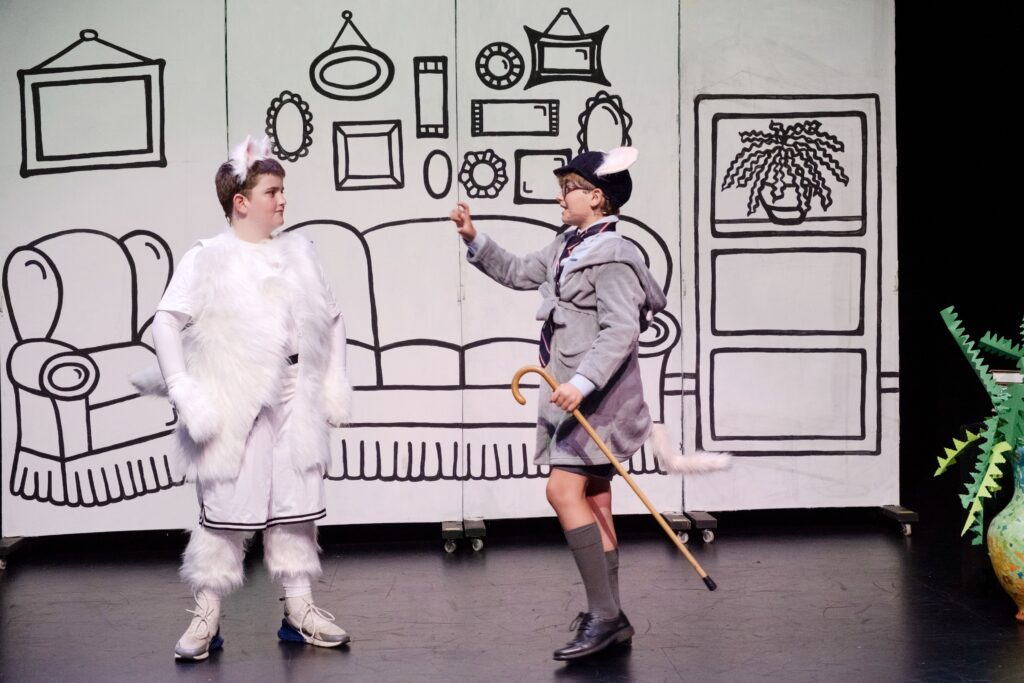
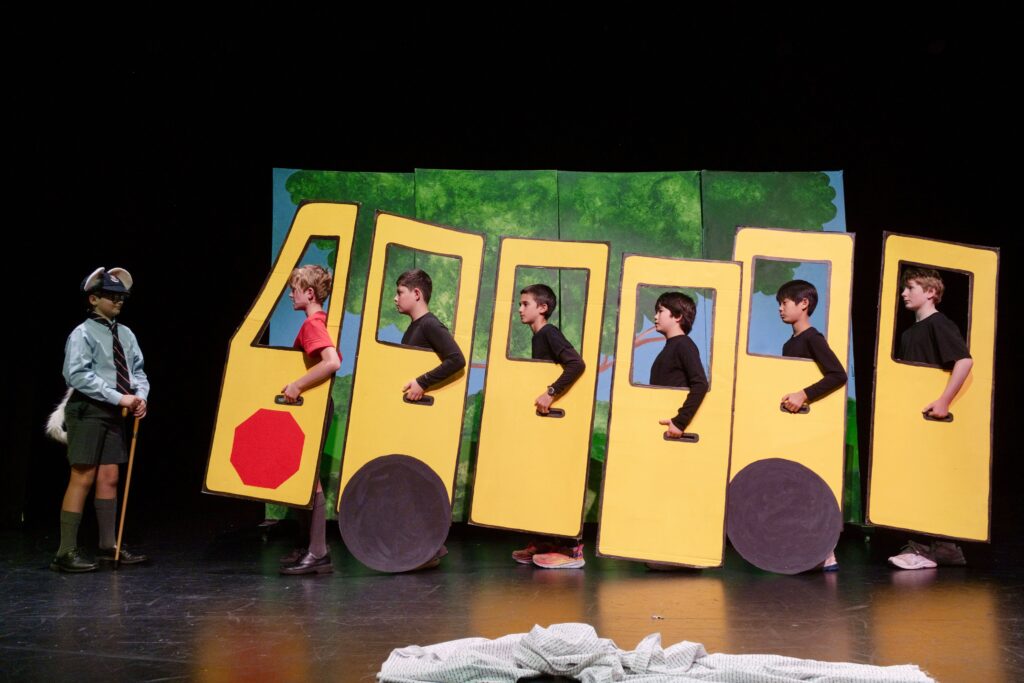
What made you choose Stuart Little for this year’s production?
Bringing the story of Stuart Little to the stage was a rewarding experience, not only because of its cherished characters and enchanting adventures, but also due to the profound themes that resonate with audiences of all ages, particularly young students. E.B. White’s narrative transcends being merely a tale about a small mouse in a vast world; it serves as an exploration of identity, courage, and the importance of belonging. The story illustrates overcoming obstacles, embracing diversity, and facing the unknown with confidence. While Stuart may be small in stature, he demonstrates significant moments of bravery and resilience, teaching us that challenges, regardless of their magnitude, can be approached with creativity and determination. These themes align well with our Year 5 students as they embark on their own journeys of self-discovery, leadership, and personal growth as they become the leaders of the Junior School.
How do you think this play resonates with younger students, and why is it a good fit for a Junior School production?
I hope that our young students who were in the audience were inspired to recognise that, regardless of their size or age, they possess the potential to make a significant impact on the world around them. The play served as a valuable reminder that qualities such as risk-taking, compassion, open-mindedness, and curiosity can greatly influence our journeys. Much like Stuart’s story, life is not only about reaching our goals but also about the connections we create with others and the lessons we learn along the way. It is my aspiration that the production encouraged our students to embody these values as they develop into thoughtful, caring, and courageous global citizens.
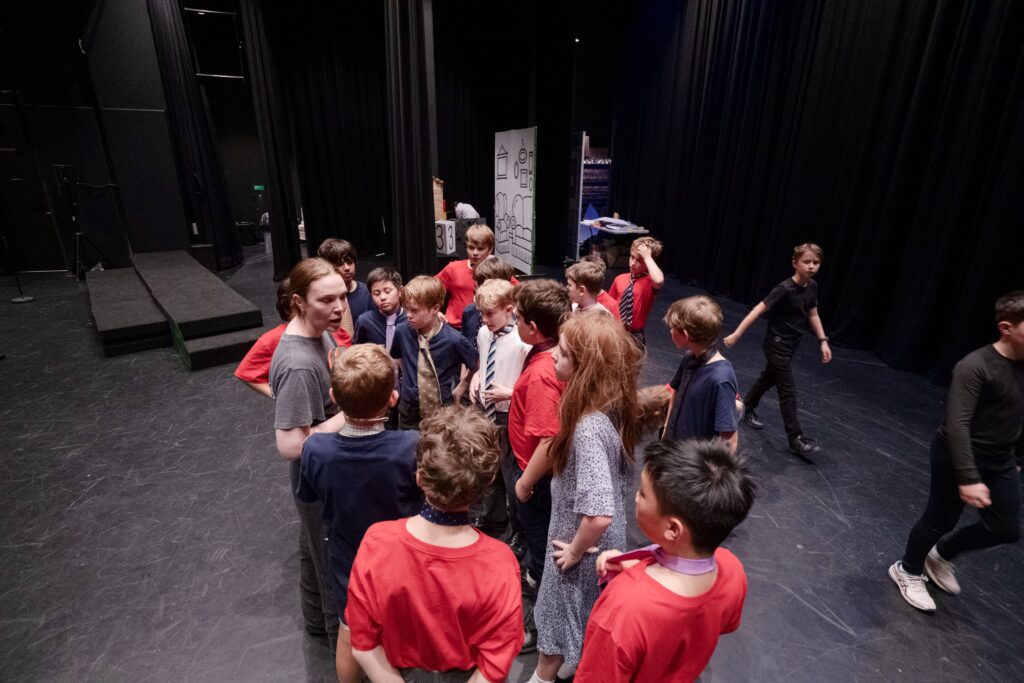
How did you manage the rehearsal process for younger students who may be new to Drama?
At Cranbrook our students are fortunate to have Drama in the curriculum from Pre-School through to Year 6. This ensures that all our students gain valuable experience in Drama. It is often during the audition process for the school play that students recognise how the skills they have developed throughout their time at Cranbrook have prepared them for the audition, rehearsal, and performance stages. In the early years, students focus on mime and expressing emotions through facial expressions and body language. As they progress to the lower primary years, they enhance these skills by vocalising and embodying familiar roles and characters. In the middle primary years, students engage in choral speaking and devising scenes inspired by literature, which requires students to devise, revise, rehearse and perform scenes for an audience. This is why by Year 5, students are equipped to apply all the skills, techniques, and forms they have learned to create a piece of theatre for a wider audience.
What specific skills do you hope the students developed through participating in this play?
The Junior School Production aims to create a memorable school experience for all students involved, whilst simultaneously fostering a love of performance, language and literature. Students have been involved in all aspects of the production. Each student’s individuality has been encouraged, as they have been supported to build on their collaboration and communication skills. It is through this focus and commitment to the production that their skills of creative thinking, leadership, time-management and problem-solving techniques have been built. This production has demonstrated to our students that commitment, perseverance and dedication can lead to success. It has been wonderful to observe Senior School Production students who previously participated in co-curricular drama at the Junior School and who were in the Junior School Production continue to nurture their passion for the arts. Many of them are still pursuing Drama as an elective and actively engaging in plays and musicals during their senior years. Mr. Andrew Benson and I are continuing our discussions on how to enhance our drama programmes across campuses, with the goal of inspiring a passion for literature, creativity, and performance from our youngest students to our oldest.
Can you share a memorable moment from the rehearsals or production itself that stood out to you?
The opening night is a significant milestone, as it marks the moment when Heather Brodie and I step back, and the cast truly takes ownership of the show. All the hard work, rehearsals, and collaboration culminate in this moment, allowing the performers to bring the story to life for the first time in front of an audience. The energy and excitement of the live performance make it a unique and thrilling experience for the cast, crew and the audience. Seeing the students come off stage beaming from the energised relationship between performers and audience is what makes opening night a highlight every year.
Why do you believe Drama is important for young students, particularly at the Junior School level?
Creativity at Junior School is crucial and serves as a fundamental component of education. Every student has the potential for creativity, provided they are offered the right opportunities and skills. This creativity can be expressed across all subjects within the School, extending beyond just the creative and expressive arts. At this stage, students naturally engage in Drama to enhance their understanding of the world around them. Drama nurtures their imagination, enabling them to immerse themselves in various characters, settings, emotions, and situations, which facilitates exploration of both diverse and relatable experiences. Drama fosters both emotional and intellectual growth, empowering our students to express their authentic selves with confidence. It serves as an essential tool that encourages active and creative engagement, preparing students to participate meaningfully as global citizens through embodied experiences.

)
)
)